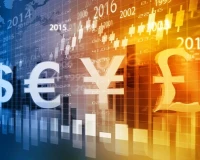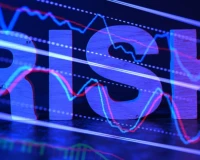The Forex market, or foreign exchange market, is the largest and most liquid financial market in the world in terms of daily trading volume. Forex is a dynamic and complex environment that brings together central banks, large corporations, financial institutions, and individual investors who trade foreign currencies to make profits or hedge against exchange rate risks. In this article, we will explore the definition of Forex, how it works, and its importance in the global economy.
Definition of Forex The word "Forex" is an abbreviation for "Foreign Exchange," which refers to the exchange of foreign currencies. Forex refers to the process of buying and selling different currencies in the global market with the goal of making profits from changes in exchange rates between those currencies. Trading in Forex is done in pairs, where one currency is exchanged for another in a specific pair, such as the Euro versus the US Dollar (EUR/USD) or the British Pound versus the Japanese Yen (GBP/JPY).
How Forex Works The Forex market operates 24 hours a day, five days a week, making it a continuous market that offers trading opportunities throughout the day. Currencies in this market are traded through Electronic Communication Networks (ECNs) or online trading platforms. Market participants include:
Central Banks: Control monetary policies and influence interest rates and exchange rates.
Commercial and Investment Banks: Trade currencies to meet client needs or to profit from price movements.
Large Corporations: Use Forex to hedge against currency fluctuations in their international operations.
Individual Investors: Trade currencies to make profits from price movements.
Currency Pairs Currencies are traded in pairs, where the value of one currency is determined by comparing it to another. Currency pairs consist of two currencies: the base currency and the quote currency. For example, in the EUR/USD pair, the Euro is the base currency and the US Dollar is the quote currency. The exchange rate is determined by the amount of the quote currency needed to buy one unit of the base currency.
Importance of Forex
High Liquidity: The Forex market offers very high liquidity, allowing traders to enter and exit positions easily.
24-Hour Trading: The market operates 24 hours a day, offering continuous trading opportunities.
Economic Impact: Forex significantly affects the global economy, as exchange rates control the cost of imported and exported goods and services.
Hedging: Forex provides a way for businesses and investors to hedge against exchange rate fluctuations.
Profit Opportunities: Forex offers large opportunities for profit from both short-term and long-term price movements.
Forex Trading Strategies There are several trading strategies that can be used in the Forex market, including:
Day Trading: Involves opening and closing positions within the same day to profit from short-term price movements.
Swing Trading: Focuses on capitalizing on medium-term price movements, typically lasting from a day to several days.
Long-Term Trading: Involves holding positions for a long period of time, ranging from months to years, based on fundamental analysis.
Technical Analysis: Relies on studying charts and price patterns to make trading decisions.
Fundamental Analysis: Involves analyzing economic, political, and global events to determine future price trends.
Forex Trading Tools To trade Forex successfully, traders must use a variety of tools, including:
Trading Platforms: Such as MetaTrader 4 and MetaTrader 5, which provide interfaces for trading currencies and analyzing the market.
Stop Loss and Take Profit Orders: Help set exit points for a trade to limit losses or secure profits.
Leverage: Allows traders to control larger amounts of capital than their invested funds, increasing the potential for profit (and loss).
Charts and Analytical Tools: Help analyze price trends and make informed decisions.
Conclusion Forex is a global market characterized by dynamism and high liquidity, and it remains one of the largest financial markets in the world. Trading in Forex can be a way to make significant profits, but it also requires a good understanding and well-planned strategies to manage risks. Whether you are an individual investor or a company looking to hedge against exchange rate fluctuations, understanding how the Forex market works and the importance of risk management strategies can be key to success in this market








